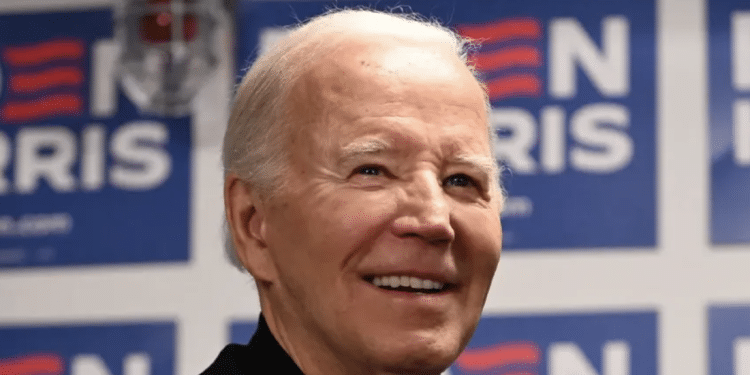Tapper’s book explores concerns within Biden’s inner circle about his public appearances, particularly in light of Special Counsel Robert Hur’s deposition. The book suggests that Biden’s advisors were worried that a simple halftime interview could expose vulnerabilities, especially with Hur’s findings about Biden’s memory and cognitive abilities about to be released. The decision to skip the interview was framed as a strategic move to avoid further scrutiny at a critical moment.
The Super Bowl Interview Risk for President Biden
President Biden’s decision to skip the traditional Super Bowl interview in 2024 was seen by some as a strategic move, while others viewed it as a missed opportunity. Historically, these interviews have provided presidents with a massive audience—often exceeding 100 million viewers—giving them a chance to communicate directly with the American public. By opting out, Biden avoided potential scrutiny over his administration’s policies and leadership, but he also forfeited a rare opportunity to shape public perception.
One of the primary risks of participating in the interview would have been the possibility of making an unscripted remark that could be used against him. Given the heightened political climate and ongoing discussions about his cognitive abilities, any verbal misstep could have fueled criticism and speculation about his fitness for office. His advisers may have been concerned that a live interview, especially one aired before such a widely watched event, could amplify any perceived weaknesses.
How Worried Was the Biden Inner Circle as it Relates to the Robert Hur Deposition
The release of the Robert Hur deposition was a moment of deep concern for President Biden’s inner circle. They were well aware that his interview with the special counsel had revealed significant memory lapses and prolonged pauses, raising questions about his cognitive abilities. The transcript had already been made public, but the audio recording added a new dimension, showcasing Biden’s struggles to recall key dates and events, including the year his son Beau passed away and the timing of Trump’s election. His aides had frequently stepped in to support his recollection, but the recording made it clear just how much assistance he needed.
Behind closed doors, Biden’s advisors had braced for the worst. They knew that the deposition would be politically damaging, especially given the heightened scrutiny surrounding Biden’s age and mental sharpness during the 2024 election cycle. His poor debate performance had already fueled concerns, and the Hur interview only reinforced the narrative that Biden was struggling with memory issues. The inner circle feared that the release of the audio would provide ammunition for critics who had long questioned his ability to serve another term.
The White House had initially resisted releasing the audio, citing concerns over potential deepfakes and manipulation. However, the pressure to make the recording public became overwhelming, particularly as Republican lawmakers accused Biden of using executive privilege to block its release. The administration’s reluctance only added to the perception that they were trying to hide something, further intensifying the political fallout.
When the audio finally surfaced, it confirmed what many had suspected. Biden’s speech was halting, his tone was soft, and his pauses were noticeable. While some of the hesitations occurred during deeply emotional moments—such as when discussing Beau’s death—others were more troubling, revealing genuine difficulty in recalling basic details. His trademark dismissal, “Anyway,” was heard multiple times when he struggled to remember key facts.
The timing of the release was particularly damaging. It came just days before the publication of Original Sin, a book by CNN’s Jake Tapper and Axios’ Alex Thompson, which examined Biden’s decline and his team’s efforts to downplay concerns about his age. The book’s revelations, combined with the Hur audio, painted a picture of an administration desperately trying to manage a growing crisis. Biden’s advisors had worked tirelessly to control the narrative, but the deposition made their job significantly harder.
Privately, Democrats had expressed concerns that the audio would be weaponized against Biden. Some had even floated the idea of keeping him out of public appearances to minimize further damage. The fear was that the recording would reinforce the idea that Biden was no longer fit to lead, a perception that had already gained traction among voters. His inner circle had hoped to contain the fallout, but the reality was that the damage had already been done.
The deposition also had implications beyond Biden himself. His vice president, Kamala Harris, had stepped in to run in his place after he withdrew from the race, but the lingering doubts about Biden’s cognitive abilities had cast a shadow over her campaign. The administration had struggled to shift the focus away from Biden’s health and onto policy achievements, but the Hur interview made that task nearly impossible. The inner circle had feared that the deposition would be the final blow, and in many ways, it was.
In the end, the release of the Hur deposition was a moment of reckoning for Biden’s team. They had known how bad the interview was before it became public, but seeing it play out in real time was a different experience altogether. The recording provided undeniable evidence of Biden’s struggles, and no amount of spin could fully erase the impact it had on public perception. His advisors had fought to protect him, but the truth was now out in the open, leaving them to grapple with the consequences.
Staff Writer David R










